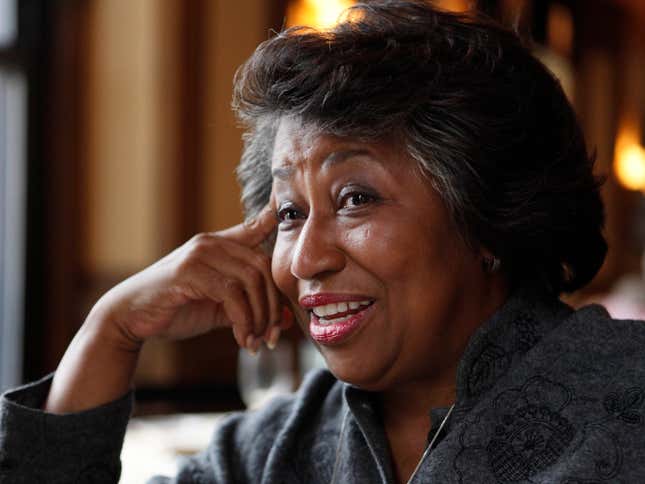
The first Black woman to serve as a U.S. senator, Carol Moseley Braun, has been out of public office for nearly 20 years. But she’s hoping to make a return to government—in President-elect Joe Biden’s cabinet, nonetheless—with an unlikely position: Secretary of the Interior.
Moseley Braun, who represented Illinois as a senator, expressed her interest in serving in the incoming Biden administration a week before the election, but did not push for a specific appointment at the time, the Washington Post reports.
“All I’ve done is let them know I’d like to be of service,” Moseley Braun told the Post.
She told the paper she believed interior secretary would be a “natural fit” for her, telling the Post it was her fight to preserve habitat for the native Illinois bird, the bobolink, that first got her interested in politics.
The one-term senator and former U.S. ambassador to New Zealand said she’s had a long interest in environmental issues, which would be a substantial focus of the interior secretary position, a role that oversees the nation’s national parks and wildlife.
But as the post points out, she has relatively little experience with regard to environmental policy or public lands.
A longtime ally of Biden’s, one of Moseley Braun’s most well-known legislative contributions is also a controversial one. The nation’s only Black senator at the time, Moseley Braun was a co-sponsor of the 1994 crime bill, and introduced a specific provision in the legislative package that would make it easier to try juveniles as adults.
Democrats decided to forego a jobs bill in order to push through the ’94 bill, which was intended to address increasing drug usage and a wave of violent crime happening in the country at the time. As the Brookings Institution notes, the bill was popular with African Americans at the time, with 58 percent supporting the bill, according to a 1994 Gallup survey (49 percent of white Americans supported it). It was also supported by many members of the Congressional Black Caucus, though several key Black members, including former Representative John Lewis, Maxine Waters, John Conyers and Charles Rangel voted against the bill.
Now, the bill is believed to have contributed to the boom of mass incarceration, though the Brookings Institution notes that the “bulk of growth” in imprisonment rates happened in the 15 years before the bill’s passage.
Moseley Braun also experienced other setbacks that helped prevent her from getting re-elected. She was accused of ignoring sexual harassment allegations against her then-fiancé and campaign manager, Kgosie Matthews. She has never been accused of criminal wrongdoing, but at the time, Moseley Braun lamented, “No U.S. senator has been investigated more than me.”
The 73-year-old Moseley Braun told the Post recently that an investigation was unable to turn up evidence to back up the claims.
If selected to serve as interior secretary, she said she would focus on reducing the spread of COVID-19 in indigenous communities, and ramp up the agency’s workforce and revamp the National Park Service’s infrastructure At the heart of her decision-making will be addressing climate change.
“Climate change is the existential threat; that’s the challenge for our generation,” she said. “If we don’t do something about that, we are failing the next generation.
Currently in contention for the role are Rep. Deb Haaland, a New Mexico Democrat who would be the first Native American to hold the position, as well as Sen. Tom Udall.

